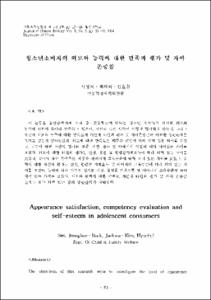탈현실주의적 입장의 이론적 도전에 대한 비판적 고찰
- Alternative Title
- Post-Realist Theoretical Challenges to Neo-realist International Theory: A Critique
- Abstract
- 국?┛喚完隙? 주류이론인 신현실주의는 탈냉전을 전후하여 다양한 이론적 계보로부터 거센 도전을 받게 되었는데, 특히 단위의 민주화와 국제평화의 상관관계에 주목하는 신칸트주의학파와 국제무정부 하의 협력가능성을 논리적으로 증명하고자 하는 협력론에 의하여 1980년대 중반부터 신현실주의의 이론적 타당성은 의심을 받아왔다. 이러한 도전의 흐름을 구성하는 이론적 구조는 단위와 체제의 문제, 구조와 변화의 문제, 공동체와 정체성의 문제 등으로 요약할 수 있는데, 이 모두는 신현실주의의 핵심적 주장에 대한 부정인 동시에 주류이론의 해체를 도모하는 이론들이다. 그러나 신칸트학파의 주장은 단지 역사적으로 자유민주주의 국가들 사이에 대규모 전쟁이 없었다는 사실에 입각한 추론에 지나지 않으며, 상호의존의 경우도 그것이 민감성과 취약성을 동시에 증가시키는 기제를 포함하고 있다는 의미에서 단위의 변화에 의한 체제의 변화를 설명하는 충분한 논거에 기초하고 있다고 볼 수 없다. 새로운 정체성에 대한 논의의 경우 아직은 규범론적인 수준에 머물고 있기 때문에 지금까지 고려되지 않았던 요소들에 대한 고려가 필요하다는 차원에서 중요성을 갖고 있는 것이지 신현실주의의 이론적 타당성을 제약하는 데에는 한계가 있다. 특히 신국제주의의 논의가 활발해진 시점에서도 국가들의 보편주의에 입각한 국가행동이 국가이기주의를 감추고 있다는 점에서 아직은 국제무정부와 주권이 포기되기에는 요원하다고 할 것이다.
Neo-realism, the mainstream international theory, has been confronted with various challenges from genealogically different kinds of theoretical positions since mid-1980's and more concretely since the end of the Cold War, especially among which Neo-Kantian school and neo-liberal institutionalists have been outstanding in limiting the theoretical feasibility of neo-realism: the former stresses correlations between democratization and international peace; and the latter try to prove the possibility of cooperation among sovereign states under international anarchy. Anyways, these theoretical challenges are succinctly summarized in three categories of problematique: unit and system; structure and change; and community and identity. All of these are aiming at negation of neo-realism's theoretical core and de-construction of the mainstream international theory. But they are lack of logical foundation to explain that systematic change could be caused by unit-level changes, because Neo-Kantian argument is only a reasoning based on the fact that there has been no major war among liberal democratic countries, and interdependence increases sensitivity and vulnerability simultaneously. Newly raised arguments on identity are important in that the factors left out of consideration should be taken into account, but they are not sufficiently capable of limiting the theoretical feasibility of neo-realism. It is because they remain only at the normative stage. Even at the time when neo-internationalism attracts humanitarian attention of many civilized countries, the claims on states' action based on universal value hide each nation's egoistic calcualtion. It will take a very long time to renounce international anarchy and state sovereignty as the core concept of international theory.
Neo-realism, the mainstream international theory, has been confronted with various challenges from genealogically different kinds of theoretical positions since mid-1980's and more concretely since the end of the Cold War, especially among which Neo-Kantian school and neo-liberal institutionalists have been outstanding in limiting the theoretical feasibility of neo-realism: the former stresses correlations between democratization and international peace; and the latter try to prove the possibility of cooperation among sovereign states under international anarchy. Anyways, these theoretical challenges are succinctly summarized in three categories of problematique: unit and system; structure and change; and community and identity. All of these are aiming at negation of neo-realism's theoretical core and de-construction of the mainstream international theory. But they are lack of logical foundation to explain that systematic change could be caused by unit-level changes, because Neo-Kantian argument is only a reasoning based on the fact that there has been no major war among liberal democratic countries, and interdependence increases sensitivity and vulnerability simultaneously. Newly raised arguments on identity are important in that the factors left out of consideration should be taken into account, but they are not sufficiently capable of limiting the theoretical feasibility of neo-realism. It is because they remain only at the normative stage. Even at the time when neo-internationalism attracts humanitarian attention of many civilized countries, the claims on states' action based on universal value hide each nation's egoistic calcualtion. It will take a very long time to renounce international anarchy and state sovereignty as the core concept of international theory.
- Issued Date
- 1999
- Type
- Research Laboratory
- Alternative Author(s)
- Kim,Joohong
- Publisher
- 사회과학논집
- Language
- kor
- Rights
- 울산대학교 저작물은 저작권에 의해 보호받습니다.
- Citation Volume
- 9
- Citation Number
- 2
- Citation Start Page
- 37
- Citation End Page
- 58
- Appears in Collections:
- Research Laboratory > Journal of social science
- 파일 목록
-
-
Download
 000002024860.pdf
기타 데이터 / 688.79 kB / Adobe PDF
000002024860.pdf
기타 데이터 / 688.79 kB / Adobe PDF
-
Items in Repository are protected by copyright, with all rights reserved, unless otherwise indicated.